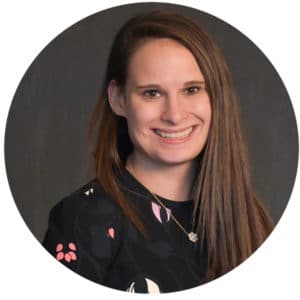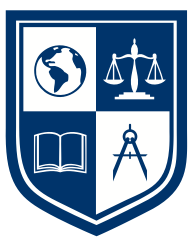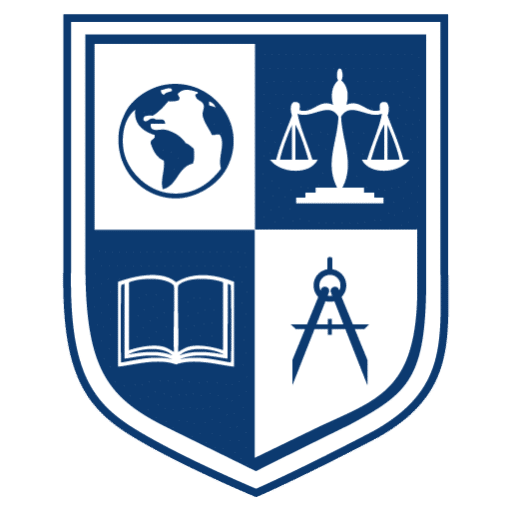Innovation at Classical Charter Schools
Classical Charter Schools is unique in using data to achieve its mission of developing academically successful, liberated scholars of impeccable character. Our meticulous, data-informed approach to innovation means we are constantly improving our practice based on evidence. Of course, it also means that in comparison to other charter networks, Classical has grown slowly, often without the fanfare. And, unlike other charter networks, Classical has been able to scale without compromising on its promise to provide every scholar with an excellent education in every classroom, every year.
The ability to open new schools without compromising instructional quality is unique. In this article, we break down how Classical has managed to achieve this through consistency, systemization, and data-analysis. We also explore if the systems that have allowed us to scale, will also allow us to adapt to the unprecedented circumstances and long-term uncertainty COVID-19 presents.
The Origin of Innovation
When I started teaching at Classical in 2013, the focus of innovation was on creating a rigorous, common-core aligned curriculum. The idea was that by creating a network-wide curriculum built on New York State Exam data from previous years we could be sure that all scholars were receiving high quality instruction in every classroom. No longer would instructional quality vary by teachers’ experience or lesson planning skills. The new curriculum would streamline teachers’ efforts and provide the possibility for revision based on best practices and new circumstances. Under the guidance of a reliable, standards-aligned curriculum, teachers could focus on targeted support, lesson differentiation, family partnerships, and engagement. And, as we opened new schools, our standardized curriculum would provide the foundation for immediate success. This turned out to be the case when South Bronx Classical II opened in the fall of 2013 and, in the very same year, produced academic results that were on part with that of South Bronx Classical I.
The systemization of curriculum was the catalyst for further innovation. Since all scholars were learning from the same lessons and assessed by the same tests, Classical could better pinpoint the scholars or classrooms that were falling behind, making immediate, targeted intervention possible. This extensive progress monitoring, in addition to gradual organizational expansion, meant Classical needed a centralized system for data management. And so, the Data and Research Team at Classical Charter Schools was born.
Data and Research at Classical
In 2018 Classical began developing Novus, a proprietary application that would give teachers real-time information about scholars’ academic progress at the item, question, and standard level. As data became organized, the Data and Research team also began using Microsoft Power BI dashboards to create reports that consolidated information from many systems in one place for a more holistic view of scholar progress.
I joined the Data and Research team at Classical during the 2019-2020 school year, after teaching at Classical for four years and developing research skills in my graduate work. Since then, the data team has thought carefully about how to improve the efficiency of reporting and how to combat “summer slide” – or the loss of learning in the months scholars are out of school. On the reporting side, we created custom dashboards so teachers could efficiently tailor report card comments to scholars’ specific strengths and weaknesses. On the analysis side, we examined historical progress at Classical through the Novus app. We found that since the 2009-2010 academic year, Classical has reduced summer learning loss in reading from 15.5 weeks to about 2 weeks of instruction. Innovations in both of these areas were exciting and aligned with Classical’s emphasis on constant improvement. Up until March, it seemed as though these two areas were where we were going to continue to invest our research, then we were quickly forced to adapt.
Looking Forward
In March, COVID-19 presented new challenges. Purposeful innovation and alignment in our approach across the network allowed Classical to lean on systems already in place, like our scripted curriculum and data dashboards, when creating a remote learning program.
When designing the remote program, a major question we struggled with was whether to provide pre-recorded lessons, teach in real time, or provide resources for scholars to complete on their own. Classical chose to implement synchronous teaching, which allowed teachers to continue the sequence of the curriculum, provide real-time support, and maintain a sense of community for scholars. And, since our model already relied on a structured, network-wide curriculum, we were able to consolidate classrooms into a single classroom per grade, which made remote teaching more sustainable for everyone.
We know that now more than ever, it is critical to use data to assess scholars’ progress, especially if remote learning is going to continue, the question is how. Before launching our remote learning program, we first began by solidifying our plan for tracking attendance since attendance is critical for continued learning and for identifying scholars who need additional support. Currently, attendance is taken during each lesson and reported on a Power BI dashboard, allowing teachers and school leaders to monitor scholar absences by subject and by day. By supporting scholars who have low attendance, we’ve maintained a network-wide attendance of 96 percent!
Once we had a system in place for attendance, we began adapting how we monitor academic progress. We knew that it was not only important to administer formal assessments, but also to check in with scholars throughout lessons and units. In their daily check-ins with scholars, teachers track homework completion and provide individual reading conferences and skill monitoring. This personalized support has maintained scholar engagement and progress since March.
We also know it is vital to continue to track scholars’ progress more formally as the academic year comes to a close. As remote learning is a novel territory, having information about scholars’ skill development will inform how teachers fill in skill gaps that may have come from the massive disruption COVID-19 created and help Classical evaluate the efficacy of its remote learning program. Researchers are anticipating that students will experience a slide in academic progress during this pandemic, similar to a summer slide.1 Luckily, since we have continued to teach our scripted curriculum, we will be able to determine how scholars’ performance differs from previous school years: vital for evaluating our remote learning program and determining how to move forward. Scholars at Classical have taken one round of reading assessments and will take one more before the school year ends. Scholars will also take formal end-of-year assessments in English Language Arts and mathematics. I am hopeful that by comparing academic progress during remote learning to scholars’ progress during the school year and to previous years, we will be able to determine plans for addressing skill gaps in the long term and ways to adjust in the short term.
It is uncertain whether we will return to in person classes in the fall, but we will continue to evaluate our progress daily and adjust our course when needed. Scholars have been working harder than ever in remote classes. We are excited to track and celebrate their progress during this time, just as we did throughout the school year. As our organization grows and the world changes, Classical will continue innovating in order to give all scholars the education they deserve.

This post was contributed by Ms. Katelin Maguire, Research Associate at Classical Charter Schools. As a non-CMO charter network, we rely on the thoughts, opinions, and innovations of our staff to move our mission forward and provide an excellent academic option to families in the South Bronx. To hear more from our staff, check out the next post! Or, click here to learn more.


